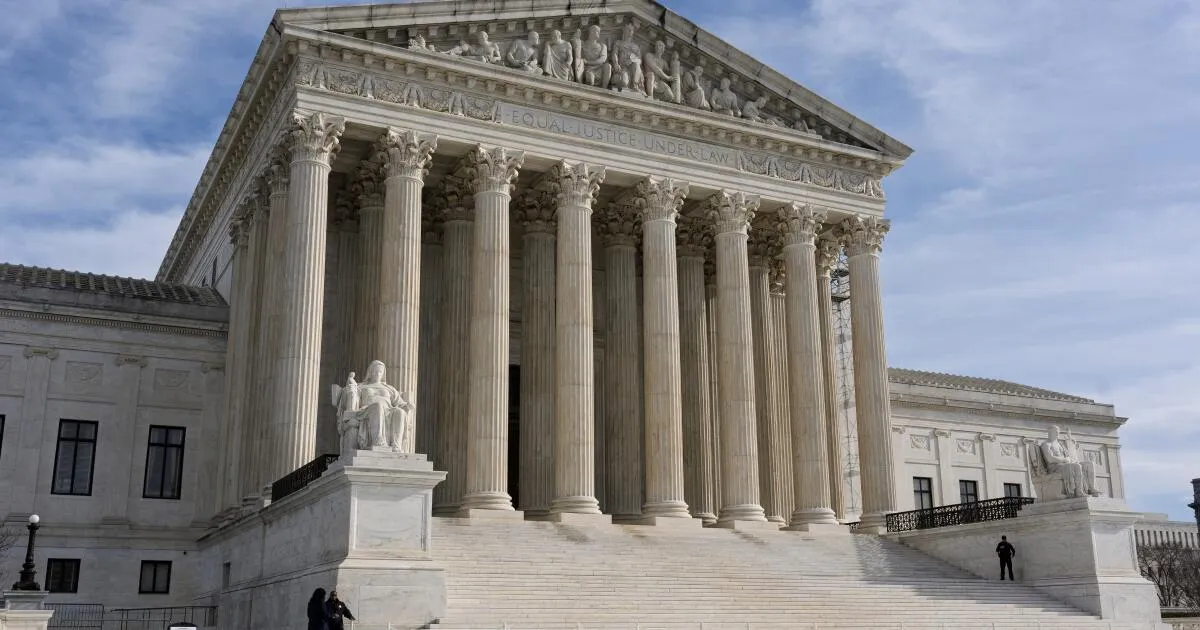
The Supreme Court delivered a significant ruling on Friday, instructing conservative judges in Texas to provide a hearing for detained Venezuelans that the Trump administration aimed to deport to a prison in El Salvador. This decision came after the justices expressed their disapproval of the swift actions taken by Texas judges and the administration's legal representatives, who attempted to expedite the deportations over a weekend in mid-April.
This rush led to a post-midnight order from the Supreme Court, which clearly stated that the government could “not remove any member of the putative class of detainees.” The administration had claimed authority under a wartime law from 1798, labeling the men as “alien enemies.” However, the justices issued an unusual eight-page order detailing their concerns and rebuking both the federal judge in Lubbock, Texas, and the 5th U.S. Circuit Court of Appeals for failing to safeguard the due process rights of these detained individuals.
The order emphasized that while the government “may remove the named plaintiffs or putative class members under other lawful authorities,” it must also respect their due process rights. The ruling sends a strong message about the justices' discomfort with the Trump administration's attempts to fast-track deportations and the reluctance of certain judges to uphold the constitutional rights of detainees.
In response to the ruling, former President Trump took to Truth Social to express his frustration, stating, “THE SUPREME COURT WON’T ALLOW US TO GET CRIMINALS OUT OF OUR COUNTRY.” He further commented, “This decision will let more CRIMINALS pour into our Country, doing great harm to our cherished American public.”
Lee Gelernt, deputy director of the ACLU’s Immigrants’ Rights Project and lead counsel, hailed the court's decision as a strong rebuke to the government's efforts to hastily deport individuals. He remarked, “The use of a wartime authority during peacetime, without even affording due process, raises issues of profound importance.”
Earlier in March, Trump’s immigration officials had already transported three planeloads of detainees to a maximum-security prison in El Salvador before a federal judge in Washington could intervene. Among those detained was Kilmar Abrego Garcia, a Maryland resident who had a protective immigration order against deportation to El Salvador. Following this incident, the Trump administration declared that these detainees could not be returned, despite a Supreme Court directive obliging them to facilitate Abrego Garcia’s return.
In mid-April, another attempt to deport detainees was nearly executed from a different prison in Texas. ACLU lawyers quickly filed an emergency appeal with U.S. District Judge James Hendrix, arguing that many of the detainees were en route to the airport without having a chance for a legal hearing. The judge denied the appeals for all but two detainees, and the 5th Circuit Court upheld this decision, criticizing the detainees for not providing the judge sufficient time to act.
The Supreme Court disagreed with these conclusions on Friday, overturning the 5th Circuit's ruling. The justices highlighted that the district court's delay—14 hours and 28 minutes—effectively denied the detainees any recourse against an imminent threat of severe harm. They reiterated that the 5th Amendment guarantees due process in removal proceedings, reinforcing the idea that no individual should be removed from the United States without a chance to be heard.
Although the ruling is a significant step for the rights of these detainees, it does not alter the status of those already sent to El Salvador. The ongoing legal battles surrounding immigration policy and due process continue to unfold in the wake of this landmark decision.